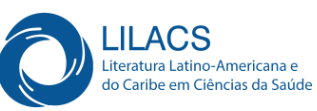Escrever e inscrever a maternidade por meio dos blogs
DOI:
https://doi.org/10.5433/2236-6407.2019v10n3suplp85Palavras-chave:
maternidade, mulheres, bebês, blogs, psicanáliseResumo
Tornar-se mãe exige a elaboração de uma posição subjetiva diante do filho. As formas de enfrentamento da maternidade são singulares e revelam transformações diferentes em cada época. Nessa perspectiva, o objetivo desse trabalho é discutir algumas expressões atuais da maternidade que são reveladas em blogs. O estudo enfatiza o recurso da escrita de mulheres nesses espaços, onde elas discutem suas dificuldades com os cuidados com os bebês, a sobrecarga que esse novo lugar de mãe impõe quando vem associado a papeis profissionais, e a solidão no enfrentamento das novas tarefas. O material examinado foi retirado de alguns blogs onde as trocas revelavam novos sentidos sobre o processo de construção da maternidade. A análise foi feita com /o aporte da psicanálise winnicottiana. Tal procedimento revelou que o endereçamento à diferentes parceiras, facilitava o processo de elaboração de muitas dificuldades enfrentadas pelas mulheres com seus bebês e famílias.
Downloads
Referências
Belo, F. R. R., Guimarães, M. R., & Fidelis, K. A. B. (2015). Pode um pai ser cuidadoso? Crítica à teoria da paternidade em Winnicott. Psicologia em Estudo, 20(2), 153-164. DOI: 10.4025/psicolestud. V 2012.24274
Benhaïm, M. (2007). Amor e oÌdio: a ambivaleÌ‚ncia do amor materno. Rio de Janeiro: Cia de Freud.
Braga, A. (2008). Personas materno-eletrônicas: feminilidade e interação no blog Mothern. Porto Alegre: Editora Sulina.
Ferreira, M.C., & Aiello-Vaisberg. T.M.J. (2006). O pai 'suficientemente bom': algumas considerações sobre o cuidado na psicanálise winnicottiana. Mudanças - Psicologia da Saúde, 14(2), 136-142.
Iaconelli, V. (2015). Mal-estar na maternidade: do infanticídio à função materna. São Paulo: Annablume.
Lipovetsky, G. (2000). A terceira mulher: permanência e revolução do feminino. (Trad. Maria Lucia Machado). São Paulo: Companhia das Letras.
Lisauskas, R. (2017a). Ser mãe é padecer na internet. Recuperado de http://emais.estadao.com.br/blogs/ser-mãe/
Lisauskas, R. (2017b). Mãe sem manual. Caxias do Sul: Belas Letras.
Lobo, L. (2007). Segredos Públicos: os blogs de mulheres no Brasil. Rio de Janeiro: Rocco.
Postman, N. (1999). O Desaparecimento da Infância. Rio de Janeiro: Graphia.
Winnicott, D.W. (2014). E o pai? In D. W. Winnicott, A criança e o seu mundo (pp. 127-133) (6ª. Ed, Trad. À. Cabral). Rio de Janeiro: LTC. (original publicado em 1949).
Winnicott, D.W (2012). Os bebês e suas mães (p.16) (4ª. Ed. Trad. Jefferson Luiz Camargo). São Paulo: Martins Fontes. (original publicado em 1988.)
Winnicott, D.W. (1989). A contribuição da mãe para a sociedade. In D. W. Winnicott, Tudo começa em casa (pp.97-100). (Trad. Paulo Sandler). São Paulo: Martins Fontes. (Original publicado em 1957).
Downloads
Publicado
Como Citar
Edição
Seção
Licença
Copyright (c) 2020 Estudos Interdisciplinares em Psicologia

Este trabalho está licenciado sob uma licença Creative Commons Attribution 4.0 International License.
Estudos interdisciplinares em Psicologia adota a licença CC-BY, esta licença permite que os reutilizadores distribuam, remixem, adaptem e criem a partir do material em qualquer meio ou formato, desde que a atribuição seja dada ao criador. A licença permite o uso comercial.
Este obra está licenciado com uma Licença Attribution 4.0 International (CC BY 4.0)




















